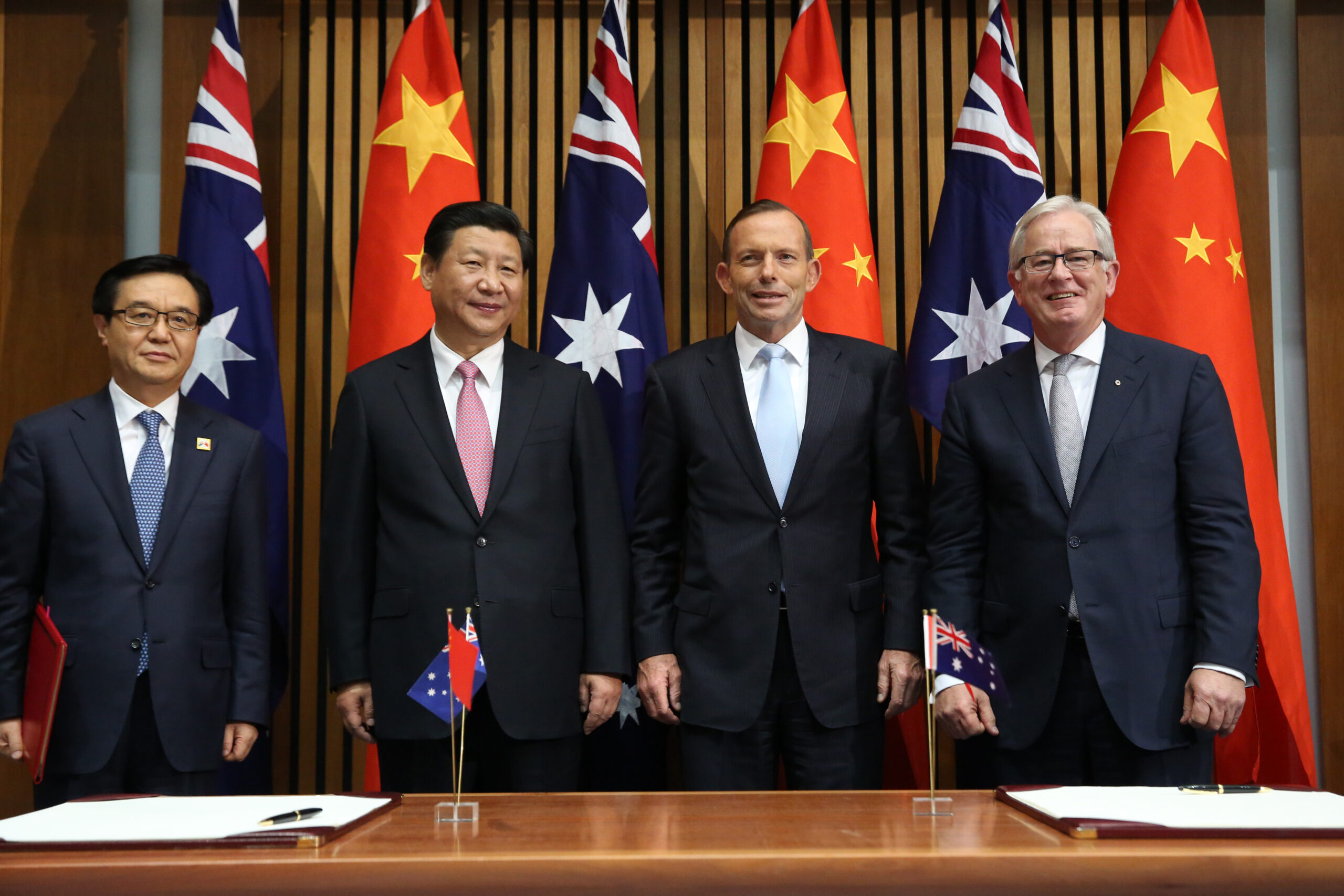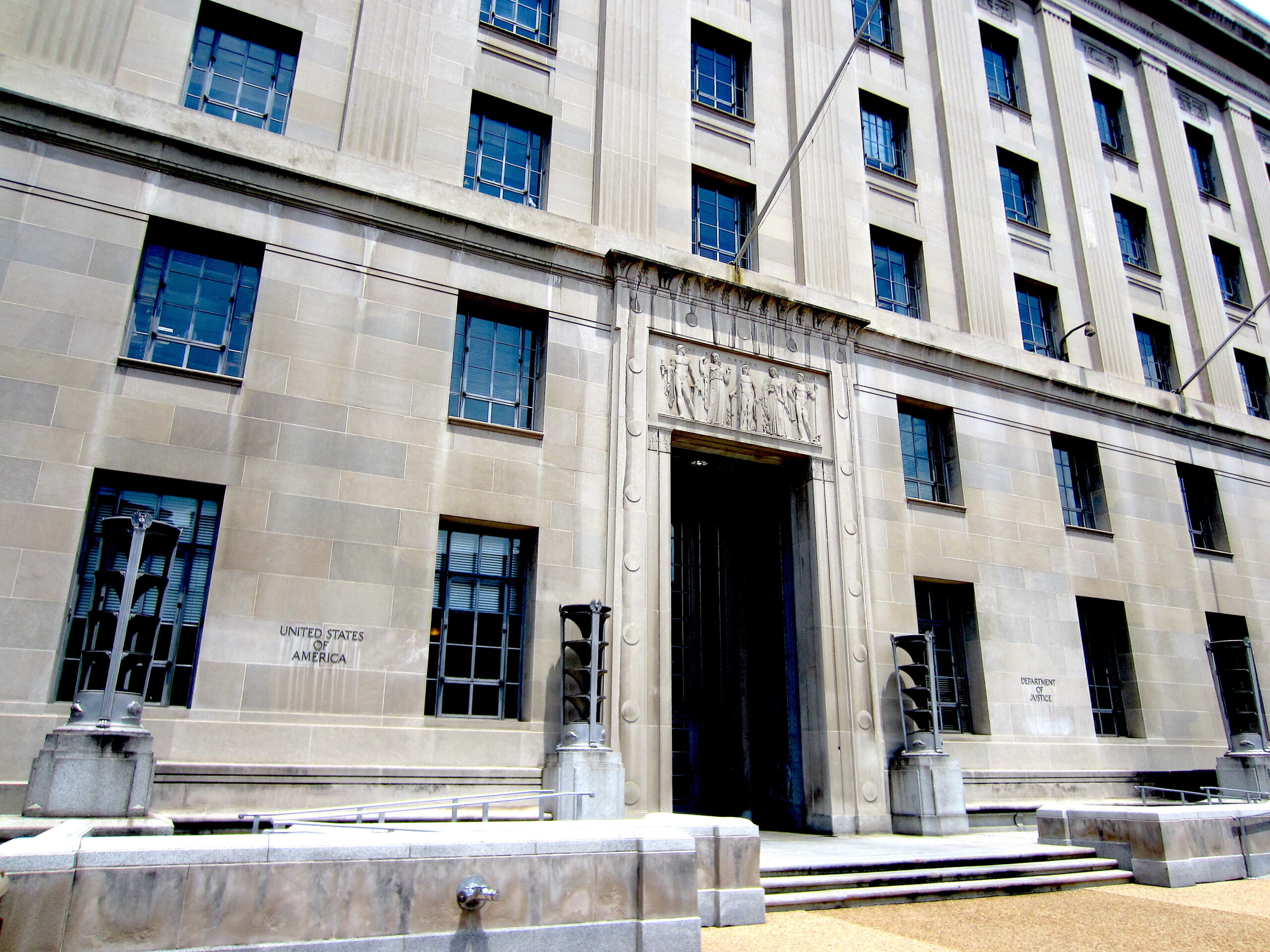US Pursues Australian Citizen
With Extradition Threat
Mary Kostakidis says Dan Duggan, a pilot who will be in a court hearing on Friday, is a victim of the changed relationship between Washington and Beijing.
excerpts:
The extradition hearing of Dan Duggan, an Australian citizen and father of six who has been held in solitary confinement for 19 months in breach of U.N. conventions at the request of the United States, will be held Friday in a Magistrate’s Court in Sydney.
Duggan has been indicted by the U.S. on four Counts — one of conspiracy, two on violations of the Arms Export Control Act, and one of money laundering — in all carrying a maximum penalty of 65 years.
Astonishing details have emerged of his relationship with the Australian Security Intelligence Organisation (ASIO) – contact Duggan says occurred over many years both directly and through an intermediary, before, during and after he was in China where he was held arbitrarily for seven years.
A recent submission to the attorney general from his lawyer Bernard Collaery (in a typo the document is dated March 2023 instead of 2024) and a letter to the Inspector General of Intelligence and Security (IGIS) Christopher Jessup from Dan Duggan around the same time, have been obtained by Pearls and Irritations.
IGIS is the authority charged with oversight of Australia’s intelligence services. The former document was also obtained and published by Michael West last week.
The recent letter to IGIS followed a ruling by the inspector general on Duggan’s earlier complaint about the conduct of ASIO, which was filed before Duggan was provided with the U.S. indictment, and furnishes supplementary information on his relationship with the intelligence agency.
IGIS had dismissed most of Duggan’s complaints based on available information from Duggan at the time and a response from ASIO, but found some impropriety in ASIO’s behaviour. The full IGIS report is classified so the nature of the impropriety is unknown.
According to Collaery’s submission seeking the scrutiny and intervention of the attorney general, the indictment is riddled with errors.
The substantive offences relate to a period when Duggan was an Australian not a U.S. citizen — an error of fact according to his lawyers — he became naturalised on Jan. 26, 2012 and under U.S. law consequently automatically lost his U.S. citizenship.
Significantly his case also rests on the argument there is no dual criminality as the alleged offences were not offences under Australian law at the time, and that they are political in nature — that Duggan is a victim of the changed relationship between the U.S. and China, and the U.S.’ desire to demonstrate the repercussions that may await those doing business with a competitor it now regards as an enemy.
Duggan denies he was training military pilots, or using anything other than open source material. He also denies any conspiracy, adding that the alleged conspirators include a low level mechanic but not a much more senior employee Duggan believed was spying for the British.
According to information provided in Collaery’s submission, the aircraft carrier he is alleged to have used to train military pilots was thousands of miles away and not yet released from a shipyard for use. His alleged remuneration figure is incorrect.
A series of other statements in the indictment also reveal significant flaws and misrepresentations. The reference to Fighter Pilot training, for instance, was in fact a presentation module using fighter-pilot metaphors to coach success in business team building — as was displayed on his website, Corporate Top Guns, which has since been taken down; along with other business activities this activity was approved by the Civil Aviation Safety Authority.
And the list goes on. Duggan was apparently an active member of the Australian Chamber of Commerce in Beijing when the China Australia Free Trade Agreement was being negotiated in 2015 which included flight training – in Australia’s interest he argues given the number of our nationals flying within China. That agreement was reached however in a very different political climate.

From left: Chinese Commerce Minister Gao Hucheng and President Xi Jinping, Australian Prime Minister Tony Abbott and Trade Minister Andrew Robb posing in November 2014 for the signing the Free Trade Agreement with China. (Department of Foreign Affairs and Trade, Wikimedia Commons, CC BY 4.0)
Although the charges relate to his time in South Africa over 10 years ago, the indictment refers to his time in China as well.
According to Duggan, he was recruited by ASIO to spy on China in late 2012 and early 2013 after he returned to Australia from South Africa, where he had trained Chinese civilian pilots. He was one among many instructors but the only one to be indicted.
The period covered by the charges in the indictment ends on his return from South Africa, when Duggan says ASIO first made contact with him and encouraged him to spy on China where he was considering going into business.
Duggan states ASIO initially made contact with him ostensibly about the renewal of his Aviation Security ID Card (ASIO security checks are required on each occasion the card is renewed) in late 2012 and requested a meeting at which he was surprised to see a U.S. official from the Naval Criminal Investigative Service also in attendance as well as not one but two officers from ASIO.
Please Donate to the
Spring Fund Drive!
It was proposed to him that while going about his business in China, he gather information for ASIO, and a document was produced for him to sign.
Duggan says he was thrown by the turn of events, was very nervous about what was being asked of him and said he wanted his lawyer to look at the document, at which point the document was withdrawn.
The three officers indicated an interest in Duggan’s employment in South Africa with a commercial test pilot training academy, and in unrelated business activity as a consultant that would take him to China, apparently in the area of safety and new airports.
He says he was unsettled by the interest and stated that if the activity posed a problem for ASIO, he would not return to South Africa or China. He states they then said they were “indifferent” to the work he had completed in South Africa but were very interested in the possibilities future activity in China offered.

Australian Security Intelligence Organisation building in the Parliamentary Triangle, Canberra. (Nick-D, Wikimedia Commons, CC BY-SA 3.0)
Duggan said he became very nervous at their encouragement to go to China and to seek out information and senior contacts – “any generals” – that may be useful to ASIO.
They also warned him his digital communications would be monitored by the Chinese, which led him to believe the officers were concerned for his safety, and they asked him to make contact again before leaving for China.
Duggan describes his prevarication around going to China at all after this meeting on the one hand, and going ahead and doing what was asked of him on the other. He says in the end he was persuaded he was being called upon to make “an important contribution to an overall intelligence gathering mission for Australia.”
As agreed, prior to his next trip Duggan says he had two or three calls and text messages with the ASIO agent who had initially contacted him, a meeting was set up and Duggan asked that the document be brought along for him to sign but at the meeting the officer said he forgot to bring it but it was not important. “The meeting carried on, one on one, in the spirit of Australian to Australian where AR1 gave me the impression he was providing a barrier between me and NCIS, although now it seems to have been quite insincere.” They were then joined by the U.S. official and the two then spoke to him again about security awareness, Chinese surveillance and ensuring he did not have ASIO contacts named and identified as such in his phone contacts. The ASIO officer then wished him luck, telling him to be careful, and saying they will be in touch.
Duggan says he did not contact the ASIO officer while he was in China but communicated with an intermediary — a former consular official — in the interests of safety and security, assumed ASIO would contact him if they wished to and that he would debrief with them on his return. The two documents do not indicate what or whether Duggan actually provided any information to ASIO.
In June 2014, the Chinese business agent he used was arrested in Canada on unrelated charges. The Chinese suspected Duggan of contributing to the arrest and he was barred from leaving China for seven years during which he and his family felt at risk — a risk he says ASIO would have been aware of as they knew this individual was also Duggan’s agent.
Upon his return to Australia in Sept 2022 another ASIO agent met with him and said a lengthier debrief meeting would be organised involving several agents.
Weeks passed and Duggan made repeated attempts to contact ASIO but in the meantime received an email from AIDA (Aviation ID Australia) informing him that his new ID that had been issued and was in the post had been cancelled and the parcel recalled with Australia Post, due to an adverse security assessment. He then received a formal letter to that effect signed by ASIO’s chief, Mike Burgess.
There was no indication of what triggered the adverse assessment and Duggan was becoming increasingly anxious, leaving voicemail messages for the ASIO officer with whom he had met on his return from China.
That person finally called back on 11 October 2022, saying he had been on holiday, was unaware of the reasons for the new adverse security assessment, was surprised the letter was signed by Burgess. Alluding to “the rarity of high level involvement,” he told Duggan to reapply for clearance for an ID which would trigger a new assessment in the hope the matter would be resolved and that a debrief meeting date had yet to be set.
Meanwhile Duggan also contacted the intermediary he had used in China, who said he knew nothing about the development but would look into it.
ASIO had no further contact with him, he says, till his arrest on 21 October that year.
Duggan states he was desperate to get home to reunite with his family and did so as soon as the travel ban by China was lifted, that he had no hesitation about coming back, certainly did not expect he would be in any legal strife here.
He had had ASIO assessment clearance every two years since 2004, including just before he left China in 2022 when he initiated the latest application which was approved and then revoked. It’s unclear why he was given clearance by ASIO so soon before an adverse finding. He says it led his previous solicitor to suspect he was lured back, but he would have returned anyway.
It seems clear ASIO denied Duggan was recruited as a spy and IGIS accepted that, though the nature of the impropriety found is unknown.
However it is also clear that Duggan is embroiled in a political quagmire. Remarkably, he appears to have attempted to do the right thing at every turn.

Robert F. Kennedy Department of Justice Building in Washington, D.C. in July 2012. (Another Believer, Wikimedia Commons, CC BY-SA 3.0)
Duggan has been held in unacceptable conditions, with limited access to his lawyers and family. He says he is the only prisoner held on remand at the Australian maximum security facility in Lithgow, yet the presumption of innocence does not entitle him to a tool that other inmates convicted of terrorism offences have — a computer to assist in the preparation of his defence.
For the first year, until he was visited by IGIS investigators following his complaint about ASIO’s conduct, he was also shackled — a situation he says that had no justification given he was at all times polite and acquiescent, and was not a condition imposed by the prison. He says prison staff have been dismayed and told him they have “never seen anything like it.”
Duggan’s distress and anxiety has no doubt been enormous as would be that of his children to see their country subjecting their father to such harsh and unwarranted treatment.
The United States has prevented Duggan’s wife Saffrine from selling her home in order to fund his defence, despite an undertaking to have the amount that is the subject of alleged laundering held in trust, leaving the family desperate to raise funds to secure Bret Walker’s ongoing representation. Walker told an earlier hearing the offences may be regarded as political and that Duggan would be sent to the U.S. “during an election cycle of political polarisation and significant anti-China sentiment.”
Is the attorney general looking out to ensure Duggan’s rights are respected as an Australian citizen? It doesn’t appear so. The case goes to the heart of our democratic rights and the responsibilities of those charged with protecting them, particularly when those responsibilities come up against imperatives of foreign policy.
Mary Kostakidis presented SBS World News for two decades.
This article is from Pearls and Irritations.
_______________________________________________________________________________________
A Brutal Suppression of Speech
The increasingly common resort to diktats by U.S. authorities is a notable feature of contemporary American society — in all spheres, writes Michael Brenner. Read here...
The increasingly common resort to diktats by U.S. authorities is a notable feature of contemporary American society — in all spheres, writes Michael Brenner. Read here...
_______________________________________________________________________________________
WATCH: CN Live! — ‘A Turning Tide? Assange & Netanyahu’
Two rare occurrences this week raise questions about the effects of political pressure on the established order. Read here...
Two rare occurrences this week raise questions about the effects of political pressure on the established order. Read here...
_______________________________________________________________________________________
You can make a donation to Consortium News by
credit card online or by mailing a check to
Consortium for Independent Journalism (CIJ)
2200 Wilson Blvd.
Suite 102-231
Arlington, VA 22201
CIJ is a 501-c-3 tax-exempt organization, so your donations may be tax-deductible in the United States. (You also can direct donations to us through your company's charitible-giving programs.)
2200 Wilson Blvd.
Suite 102-231
Arlington, VA 22201






No comments:
Post a Comment
Note: Only a member of this blog may post a comment.